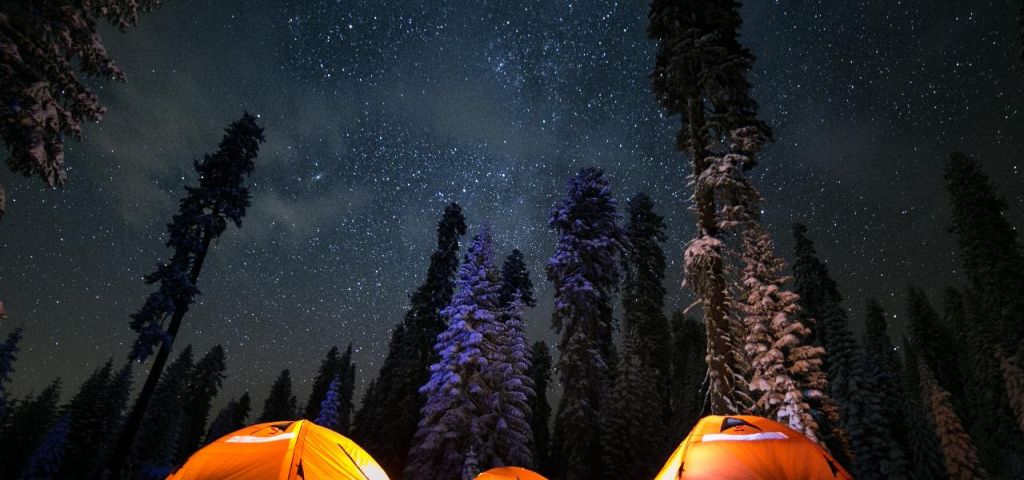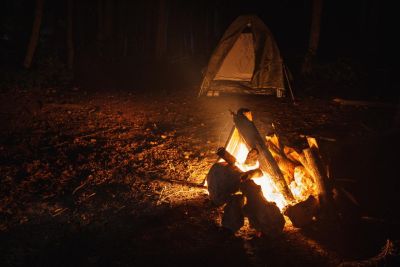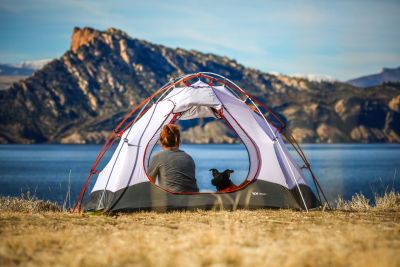
Ultimate Guide to Buying a Tent for Camping
You don't need to blow your budget on a tent because we're breaking down the year's top camping tents for every budget. So whether you're a beginner or an expert, you'll find the perfect tent for you.
Recommended Tents
In terms of overall performance: REI Co-op Grand Hut 4 Tent
Tent for comfort: REI Co-op Kingdom 6 Tent
Camping and backpacking's best cross-over option: REI Co-op Half Dome SL 2+ Tent with Footprint
Comfortable tent with almost vertical walls and excellent ventilation: Eureka! Space Camp 4 Person
Spacious camping tent on a budget: Coleman Octagon 98
Small camping tents at an affordable price: REI Co-op Trail Hut 4 Tent with Footprint
Simple to assemble and made of high-quality materials: Marmot Limestone 4P Tent
Camping tent that sets up quickly and easily: Caddis Rapid 6 Tent
Beginners and casual campers will appreciate this low-cost camping tent: REI Co-op Groundbreaker 2 Tent
Budget-friendly tent with a partial rainfly: Coleman Sundome Tent
How to Choose the Best Camping Tent
With the right equipment, camping is a gratifying hobby. However, plenty of campers are unaware of the fantastic equipment choices available. In particular, many aren't informed on how to choose a suitable tent for their camping adventures. Most campers argue that tents are the most important equipment needed when exploring the beautiful nature around us. If you're looking to get the best tent possible for your camping endeavors, you should follow this comprehensive guide.
Flooring is Important
When choosing a tent, you should always look into flooring. Considering that a tent is essentially your home when camping, you want to ensure that the foundations are suitable. Many manufacturers use varying materials when constructing tents, meaning you need to discern how one material differs from another. Generally, most veteran campers recommend choosing a synthetic material that can withstand many natural forces, such as hail and storms. Some newer tents feature protective coatings on their floors. When looking for a tent, make sure you get something that has durable and reliable flooring.
Ventilation for Comfort
Although flooring is essential, you don't want to spend your camping days inside a hot and damp tent. Ventilation is another critical factor to consider when buying a tent. Without proper ventilation, your tent will quickly become very humid and uncomfortable. You certainly don't want to have a tent similar to a cramped urban apartment when out in the refreshing atmosphere of the outdoors. Thankfully, many cool features are packed in many popular tents that prevent humidity from building up. Choose tents with excellent ventilation features to ensure maximum comfort during your trip.
Weight Requirements
Apart from ventilation, you must ensure that you can easily carry your tent from one point to another. Some tents are notorious for being heavy, especially those packed with different features. Depending on how many people you go camping with and your physical strength, you should choose a tent that you're comfortable carrying for an extended period of time. Some tents are incredibly lightweight, meaning they are perfect for camping by yourself. On the other hand, tents made for large families require the assistance of many people to carry. Depending on your situation, you should choose a tent suitable for your weight.
Specific Weather Conditions
Finding the right weight for your tents is essential, but you also need to get a tent specific to your camping environment. For example, some tents are explicitly created for those that enjoy mountaineering, while others are made for arctic environments. In addition, the tent market is full of highly specialized tents specially made for certain outdoor atmospheres. For example, if you're camping in snowy areas, you should choose a tent with features for hazards such as snow and blizzards. The tent market is booming, and there's no reason why you shouldn't choose a tent that is directly applicable to your favorite camping environments.
Size and Capacity
Tents that are durable against blizzards aren't much use if you and all your camping buddies can't fit. Many campers like to go out alone, while others favor going with many friends and family. Whatever your preference, you should choose tents with the proper size and capacity for your needs. Many tent manufacturers make varying sizes of their products, meaning you don't have to forgo a design you like because they don't have the right size for you. You should always check that a tent has the right capacity for your situation. Otherwise, you could end up in dangerous scenarios where a fellow camper can't get proper shelter.
Usability and Simplicity
Large tents are fantastic for sheltering you and your friends, but sometimes the most challenging task is setting up a tent in the first place. Some tents with incredibly complex features are designed for use by experienced campers with many years of experience. On the other hand, if you're a novice at camping, you don't want to choose a tent that's difficult to set up. Depending on your skill level, you need to choose a tent that you're confident in setting up and packing up while out in nature. Luckily, many sales associates at your favorite retailers are highly knowledgeable about what's required for each tent available for sale. Always ask around to ensure that the tent you've purchased is easy and straightforward enough for your current level of knowledge regarding camping.
Pay Attention to Materials
Never sacrifice durability for usability; one of your biggest priorities should be a tent made from the most solid materials possible. Tents that are easy to set up, yet use low-quality and flimsy materials, should always be avoided. Of course, finding something easy to use is important; however, you still have to remember that quality materials are a more significant priority. Look into the specifics about the composition of your tent, noting the proportion and mix of materials used. If you're unsure about the reliability of a particular material, you should ask veteran campers for their opinions. Ultimately, you want a tent with a proven track record for being durable under extreme weather conditions.
Don't Go Crazy with Features
Once you've found a set of tents made with high-quality materials, you might wonder whether you should choose a tent with more or fewer features. It's common knowledge amongst experienced campers that you should go with as few features and gimmicks as possible when choosing a tent. The more features there are in a tent, the higher the likelihood of something going wrong. Tents with plenty of features are great for experienced, where these additions are warranted. However, if you're new to the world of tents, you should start with simple tents that provide you with the bare basics.
Repairability and Parts
Even the simplest tents are prone to faults and breaks after constant usage. Unfortunately, many campers forget about the essential nature of learning how to repair broken tents, especially considering that many camping areas are located far away from civilization. Most high-quality tents come with a manual regarding what to do should a component of the tent become faulty. Reading up on all the tips the manual showcases for how to repair the tent is critical; otherwise, you may end up with a broken tent for days. Furthermore, you should always brush up your skills in general tent repairing by learning from experts that have experienced dealing with broken tents in the past.
Tent Design and Shape
The repairability of many tents is usually dependent on their shape and design. You'll notice that lots of tents fall into a bunch of major categories in relation to design, such as dome tents. Once again, choosing the right tent design for your situation is essential for a smooth camping experience. There are upsides and downsides to each major tent style, meaning you should choose one that provides you with the most benefits depending on where you're camping. Don't make the mistake of simply selecting a tent that looks the coolest, as you might have many unpleasant surprises once you try and set up the tent when camping. Instead, ask for as much pertinent advice as possible regarding which design is best for you.
Manufacturer Reputation
You might also want to consider the manufacturer's reputation when choosing between the various tent designs. Many brands have started to manufacture tents, but many produce substandard products. Only a few brands have continuously made a name for themselves as a brand continuously innovates their tent selections. If you ask many experienced campers, they'll likely tell you of a few of these esteemed brands. Although you shouldn't choose a tent purely on a brand name, you should still be aware of certain brands' reputations over the years.
Warranties and Guarantees
Along with the manufacturer's reputation, you also want to look into warranties and assurances provided with any tent you purchase. Don't forget that some tents are costly, meaning you want to have no cover should you find faults or issues. Most reliable brands provide plenty of assurances regarding the performance and durability of their tents. However, some sneaky manufacturers don't provide you with any guarantees or provide highly conditional warranties that are easily voided in practice. Never purchase a tent without fully understanding what protections you have as a consumer.
Veteran Camper Recommendations
When you've looked at tents with fantastic warranties, you might want some extra advice on what to choose from expert campers. The vast majority of veteran campers have had years of experience using countless different tents. Hence, if they've had experience with the tents you're currently considering, they could give you some great practical advice. Then, taking into account the advice these experts provide you, you'll easily find the most suitable tent.





